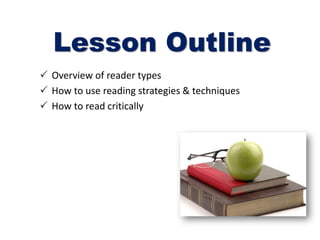The document provides an overview of reading skills, including different types of readers and their abilities as well as reading strategies to use before, during, and after reading. It also discusses reading techniques like skimming, scanning, and browsing texts as well as tips for critical reading such as questioning biases, methodology, and interpretations. The overall goal is to help students maximize their learning by utilizing effective reading strategies.













